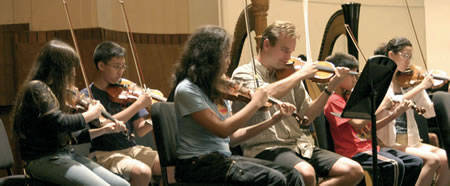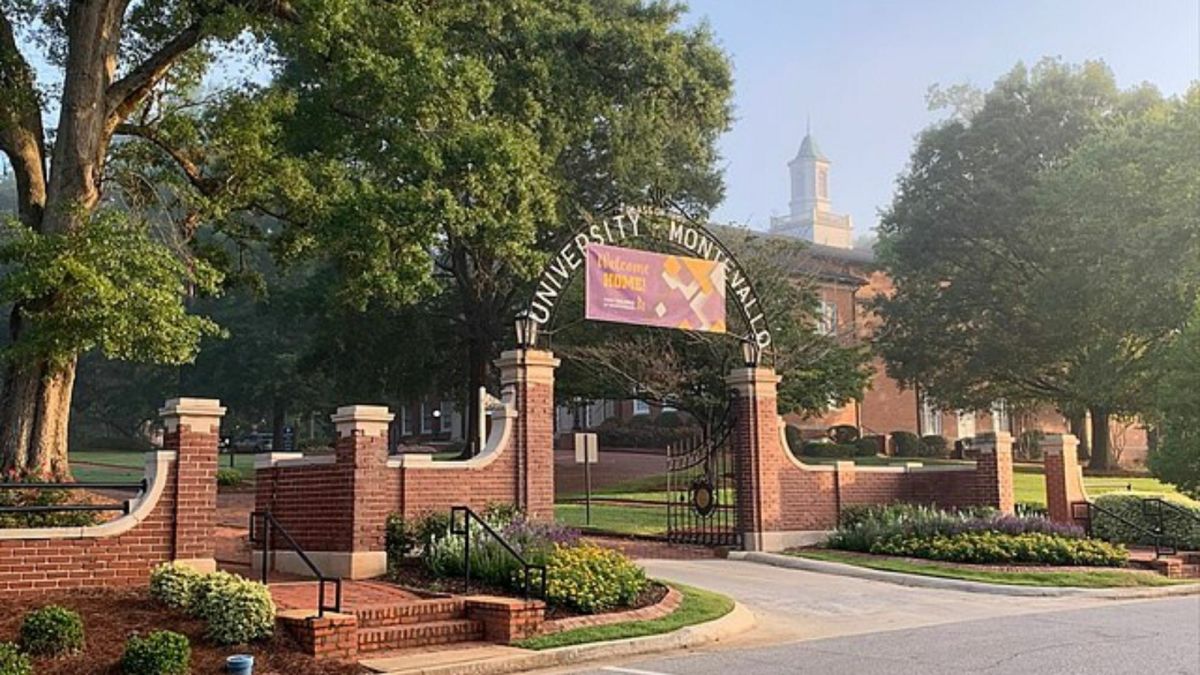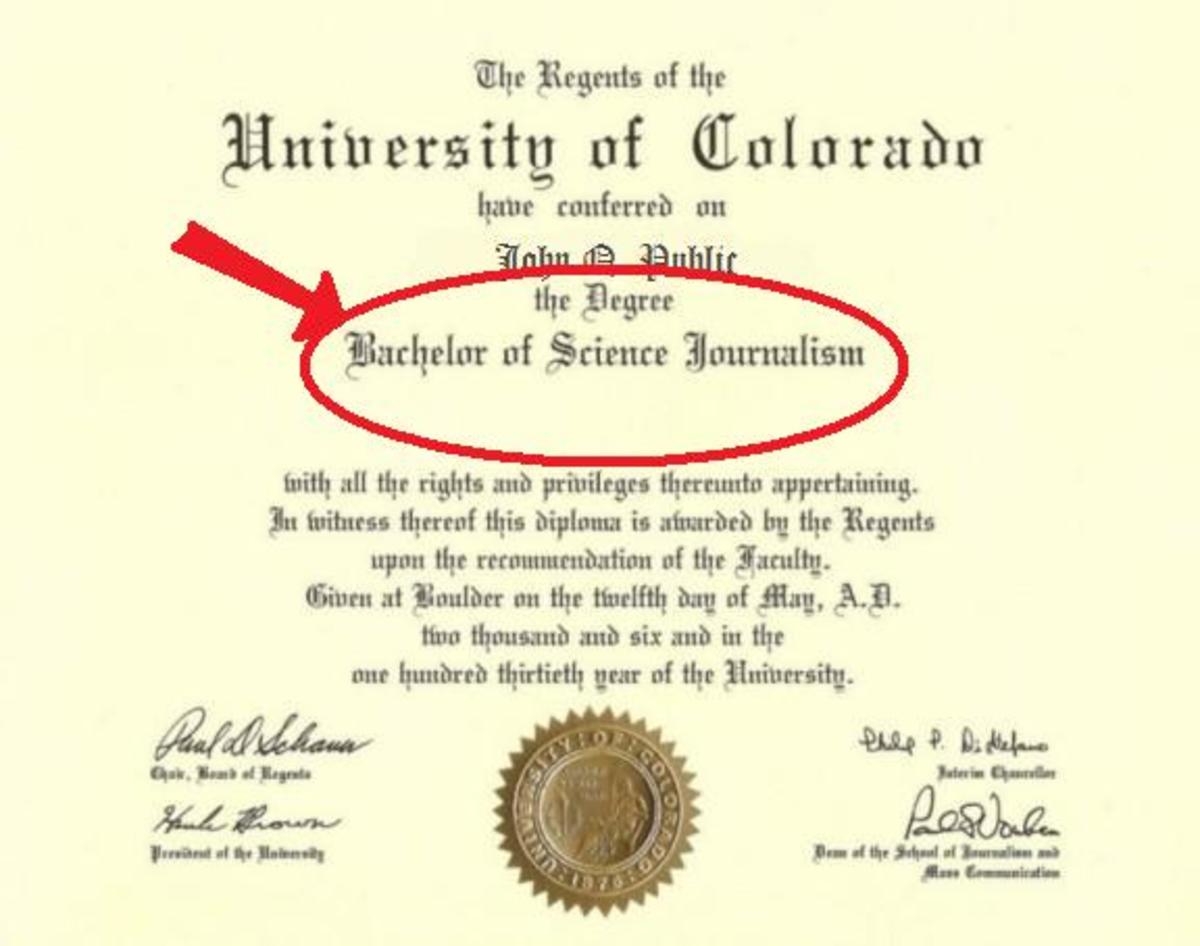Choosing the Best College Music Education for You

If you are thinking seriously about pursuing a career as a professional musician, chances are you are considering your options as far as selecting a college-level program that will help you finish your formal musical training and provide you with the personal connections you will need to become a successful performing musician. As an alumna of one of the major American conservatories, I have personally undertaken this voyage and can share some insights about the most important factors to consider when choosing where to attend music school. There are innumerable variables to consider when applying to a college music program or conservatory. One of the most important distinctions is whether you prefer to attend a music conservatory, devoted exclusively to the study of music (except for some general academic classes), or whether you would feel more comfortable attending a university with a strong music program. Many accomplished musicians graduate as college music majors, and in many cases, it is not a bad idea to have some sort of ‘backup’ education. Yet many other aspiring musicians choose the rigorous and focused atmosphere of a conservatory. This is a personal choice, and neither alternative is an absolute guarantee of future professional success.
Highly Recommended Books for the Young Musician
The Primary Relationship: Selecting a Teacher
Selecting a private teacher is the next crucial decision; as a college-level music student, the most important relationship you will have in the next four years is the one with your private music teacher. Talk to musicians you admire and ask for recommendations. A teacher’s reputation is important, but personal recommendations reveal even more about a teacher’s style and personality. It is ideal to find a teacher who specializes in the areas that are most important to you. For example, if you wish to spend your college years preparing for a orchestral career, you probably want to study with someone for whom audition preparation and orchestral excerpts are a priority, not someone who views these as unnecessary roadblocks on the way to a career as a soloist. If you plan on visiting schools to audition, you may want to try to arrange a trial private music lesson with the prospective teacher. Not all teachers will accommodate this request, but many will, especially if you offer in advance to pay them for their time. Alternatively, most college music teachers have faculty appointments at music festivals in the summer, and you might want to plan ahead and attend one where a prospective teacher is on the faculty to assess if you feel it would be beneficial to continue your studies with that teacher.
The School’s Personality and Location
Each school has its own unique image, its own flavor, both in terms of its student body and in terms of its reputation in the greater musical community. Whether a particular school is the right choice for you will depend on your specific personal and musical goals. For example, someone who wants to study avant-garde composition will probably fare better at a school with diverse music offerings, including jazz and other styles of music, than at a traditional, European-model classical conservatory. Students who crave a typical collegiate environment may prefer a university-based music school, or at least a conservatory located in close proximity to a college campus. Some conservatories will allow you to enroll at a ‘sister’ school, if they are not closely connected with a college themselves, in order to take college classes for credit. Some traditional universities offer excellent college music courses. Each institution tends to attract a particular ‘type’ of student, so it is often extremely revealing if you can manage to visit each school in order to determine which student body you most feel reflects your own personality.
Colleges and conservatories also vary considerably depending on where they are located. There are conservatories located in tiny, quaint college towns as well as schools in Midtown Manhattan. Obviously, your experience will depend greatly on your environment. Do you prefer the fantasy of yourself walking along a meandering path on an ivy-walled campus, or along a crowded city sidewalk? Are you hungry to explore the realities of city apartment living or do you prefer the availability of cozy student co-op housing? Then, there is the size of the school to consider; there are music schools which enroll less than two hundred students, and large university music departments that number in the thousands. But the student-faculty ratio does not necessarily correspond to the size of the school, so it is not always correct to assume that you will receive more individualized attention at a smaller school. Some urban conservatories have space limitations, which have led to a dearth of available practice rooms; this can be a liability when you spend much of your day practicing your instrument. Some conservatories and colleges have breathtaking, state-of-the-art facilities, including adequate practice space and large music libraries. These are all factors you want to consider even before deciding where to apply. Because most music schools require a live audition, and audition requirements vary somewhat from school to school, you will want to limit the number of applications you submit. Applying to four to seven schools is probably ideal, providing enough alternatives without causing you to become completely overwhelmed by audition preparations.
More Useful Books for the Young Musician
The Practicalities
Certainly, there are several practical considerations that necessarily figure into the choice of a music school. Music schools and conservatories differ significantly in how selective they are in admitting applicants. The most selective conservatory in the United States admits only four percent of the ambitious students who audition. The average rate of admissions at the top conservatories hovers around thirty five percen. At most of the top conservatories, the audition is the most significantly weighted factor in admissions, with relatively little importance given to other academic and personal achievements. Many college music department applications require standard academic tests and essays, which are weighed in conjunction with a performance audition to determine if a student will be accepted. It is important to assess your personal strengths to determine which colleges will most likely accept and value you as a student. If you are a musical superstar with fair grades and low test scores, a conservatory will probably be a better choice for your needs. If, however, you are a well-rounded student, but the idea of auditions makes you tense and queasy, you might be better off looking into a college music program where your academic merits will be appreciated.
Finally, there is the cost to consider; a quality college music education frequently comes with a very high price tag. The top conservatories generally cost between $49,000 and $52,000 per year, including room, board, tuition, and associated expenses. Music departments at public universities are significantly cheaper, but some private colleges, including those with associated conservatories, cost even more than conservatories, in the range of $55,000 per annum. Most music schools offer scholarships and financial assistance to a significant percentage of their students. However, often much of this aid is awarded in the form of student loans and work study. While student loans can be a valuable resource in bridging the gap between the funds a student has available and his or her desired college experience, it is best not to rely too heavily on loans to finance a music education. For an attorney, who can hope to graduate law school and find a position where his starting salary will easily cover a loan payment, perhaps student loans make sense. But to rely on loans to largely finance an expensive education in a field where the most coveted contracted orchestral jobs pay an average of $60,000 annually (and those are the jobs obtained by the talented and lucky few) can be unrealistic and cause significant financial stress after graduation. Therefore, it may be advisable for a music student to choose to attend a college or conservatory at which he or she receives a substantial merit-based award, or a school which simply costs less to begin with.
Making a commitment to pursue a college music education is a thrilling and challenging decision. Whether you decide to work towards a conservatory Bachelor's of Music (B.M.) or a traditional college music degree, you should be prepared to give yourself entirely to your studies for at least the next four years; attending a music school is a tremendous investment in the future. The college years are a significant time of maturation and growth for any young musician. Wherever you choose to attend music school, you will encounter a large number of talented and motivated students, and that energy and inspiration will likely propel you to achieve new heights in your own performance. Good luck as you pursue your musical journey, and may you find your wings!










